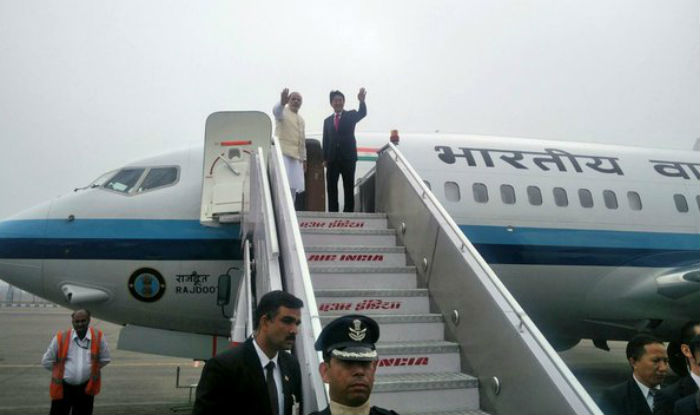-
Tips for becoming a good boxer - November 6, 2020
-
7 expert tips for making your hens night a memorable one - November 6, 2020
-
5 reasons to host your Christmas party on a cruise boat - November 6, 2020
-
What to do when you’re charged with a crime - November 6, 2020
-
Should you get one or multiple dogs? Here’s all you need to know - November 3, 2020
-
A Guide: How to Build Your Very Own Magic Mirror - February 14, 2019
-
Our Top Inspirational Baseball Stars - November 24, 2018
-
Five Tech Tools That Will Help You Turn Your Blog into a Business - November 24, 2018
-
How to Indulge on Vacation without Expanding Your Waist - November 9, 2018
-
5 Strategies for Businesses to Appeal to Today’s Increasingly Mobile-Crazed Customers - November 9, 2018
Japanese PM Shinzo Abe wraps up ‘fruitful and historic’ India visit
On Saturday, India and Japan signed a number of agreements, including one on civil nuclear energy cooperation, India’s first bullet train, and the transfer of defence equipment and technology.
Advertisement
Prime Minister of Japan Shinzo Abe attended the Business Leaders Forum with Prime Minister Narendra Modi, that began on Saturday and reiterated Japan’s commitment to contribute to India’s Make in India programme, keeping economic cooperation in the forefront.
“I cannot think of a strategic partnership that can exercise a more profound influence on shaping the course of Asia and our interlinked ocean regions more than ours”, the Indian prime minister said after the talks.
The most eye-catching deal was the new bullet train which will slash journey times between the Indian cities of Mumbai and Ahmedabad, reportedly from eight hours to about two hours. Highlighting the strategic importance of the bilateral ties, Abe said a strong India is in the interest of Japan and vice-versa.
Critics said instead of investing such a huge amount of money on a project that will be used mostly by rich businessmen, the government should have addressed dilapidated infrastructure.
“The memorandum on civil nuclear energy cooperation is more than just an agreement for commerce and clean energy”.
The deal according to the protestors is controversial as India, a nuclear-weapon nation which conducted its first nuclear test in 1974, has not joined the Nuclear Non-Proliferation Treaty.
Prime Minister Narendra Modi shakes hands with his Japanese counterpart Shinzo Abe ahead of their meeting at Hyderabad House in New Delhi December 12, 2015.
Abe, who was dressed in a traditional Nehru jacket, took part in the holy rituals along with Prime Minister Modi amid chants of holy mantras, flanked by priests.
The leaders of Asia’s second and third largest economies also announced other areas of co-operation.
Advertisement
Japan’s terms for India’s development drive are also extremely generous.





























